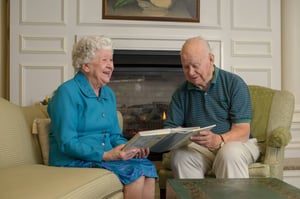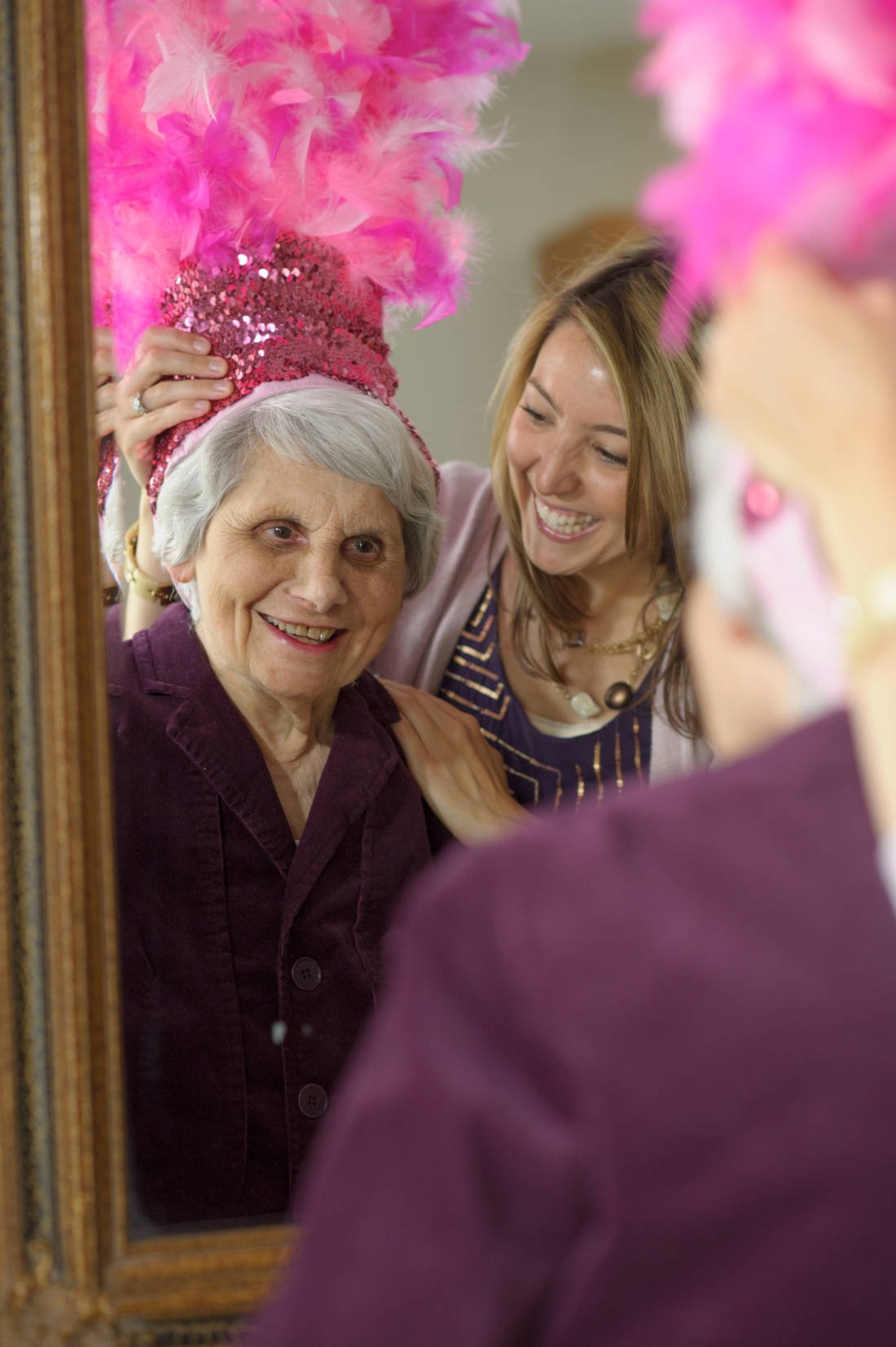Cataracts and Older Adults - What To Do
assisted living | Aging & Caregiving
 According to the National Eye Institute, more than half of older seniors over the age of 80 have cataracts or have had cataract surgery.
According to the National Eye Institute, more than half of older seniors over the age of 80 have cataracts or have had cataract surgery.
Let’s take a closer look at this common eye disease, and how the condition may affect the health and quality of life of your aging loved one.
What Are Cataracts?
The Mayo Clinic defines a cataract as “clouding of the normally clear lens of your eye.” This may result in an unclear view, clouded vision, and increased difficulty with a number of everyday tasks, including reading, driving, and identifying facial expressions.
Cataracts typically develop slowly and may not initially affect your aging loved one’s eyesight. However, as cataracts progress, they can begin to impact vision. Signs and symptoms include blurred vision, trouble seeing at night, light and glare sensitivity, the appearance of “halos” near lights, frequent prescription changes, fading colors, and double vision in just one eye.
If your aging loved one is experiencing these symptoms, contact his/her eye doctor, who will conduct a comprehensive eye exam, checking for cataracts as well as other issues affecting eye health.
Risk Factors and Preventative Measures
While cataracts can occur at any age, the condition becomes much more common as we age -- particularly within the over-60 demographic. Additionally, smoking and diabetes have been linked with the disease. Furthermore, if your aging loved one has a family history of eye problems, he/she may be at increased risk for cataracts. While no method has yet been scientifically proven to prevent cataracts, routine eye exams are an important part of managing the condition and ensuring that seniors receive the care they need.
Treatment for Cataracts
In their earliest stages, cataracts can be treated with environmental changes, including new lenses, better lighting and glare-resistant sunglasses. However, when vision loss begins to interfere with daily functions and your aging loved one's independence, cataract surgery is an effective treatment. This involves removing the damaged lens and replacing it with an artificial one.
Cataract surgery is generally considered to be safe, and can be done on an outpatient basis. The National Eye Institute reports that this procedure leads to improved vision in 90 percent of cases. Your loved one's eye doctor can help you determine whether cataract surgery is the right decision.
Coping with Cataracts
As cataracts restrict your loved one’s ability to see clearly, they can also limit his/her sense of independence. Take precautions to help your loved one prevent falls by inspecting their home environment.
Take advantage of assistive devices that can help with low vision, such as magnifying lenses, reading material with large print, and remote controls with extra large buttons, which can help your loved one manage vision changes.
Audio books can be a great alternative for those who once enjoyed reading but can no longer do so without straining. Keep in mind that in addition to physical limitations, cataracts can result in emotional stress as well.
Be sensitive to the challenges that come with vision loss and encourage your loved one to discuss their frustrations with a physician who can offer a plan for treatment. Additionally, cataract support groups can offer a helpful support network for patients and caregivers learning to manage changes in vision.
While any changes in vision can be frightening, routine eye care, proven intervention methods, and surgical measures can lead to restored quality of life for seniors suffering from this common eye disease.
Key Takeaways
-
Though cataracts may be common among older seniors, there are many options to help your loved one avoid living with their debilitating consequences.
-
If your aging loved one is experiencing symptoms, schedule an appointment with his/her eye doctor.
-
Adjustments to your loved one’s everyday environment -- as well as surgery -- can help improve his/her ability to perform everyday activities and enjoy ongoing independence.
About Marissa Salvesen
My journey into the world of senior living began when I started working for United Methodist Homes in 2010. Starting as an Activities Director at one of our-winning assisted and independent living communities and then transitioning to Marketing and Promotions Manager for UMH, I now work as the Manager of Mission Development, fostering the Mission and Values of our organization. I love sharing stories about the many ways we build meaningful relationships and enrich the lives of those we serve, and am proud to be part of building UMH’s 140-year legacy of caring. Wondering what makes our communities such special places to live and work? Connect with me and find out!

Our Blog is a 2016 Platinum Generations Award Winner! The Generations Award is an annual international competition for excellence in senior marketing recognizing professionals who have communicated to the 50+ Mature Markets.



